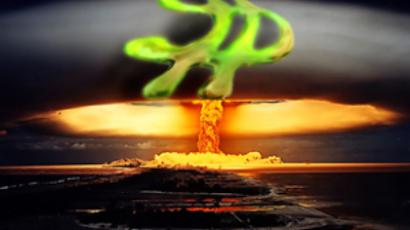G7 Finance ministers meet against protest backdrop on economic fears
The G7 Finance Ministers meeting in Rome takes place against a backdrop of protest generated by fears of job cuts and factory closures. The meeting is expected to address perceptions that more coordination is needed.
Global financial standards, taxation, and currency movements top the list of issues being addressed at the meeting of leading Finance Ministers and Central Bankers in Rome. Italian Finance minister and host, Giulio Tremonti is proposing greater unification of international legal standards on a range of issues relating to investment. Aleksandr Orlov, of Arbat Capital, say the key word should be unification – not NEW regulations.
“In the current circumstances it is not a good idea to increase belts and regulations – moreover its important to promote stability and extend the legal framework, because over the long-term investors want to be sure governments won't allow this crisis to gain ground again.”
Unification of financial regulations is a long term aim. In the short term, the imbalance of global liquidity is seeing proposals for some form of agreement to facilitate liquidity movement – from nations like Japan that have it to those that don’t, through the IMF. Aleksey Moiseev, Head of Fixed Income Research at Renaissance Capital, says this could put the IMF in an uncomfortable position.
“The IMF is clearly desperately trying to position itself as the perfect tool to fight the crisis. The problem with that is that many countries that could now be funding the IMF – those with large reserves – Russia, for example…are well aware that programs are not really working. The irony is that the IMF might actually have to now take money from countries which feel the IMF have failed them in the past.”
Outcomes from discussions in Rome will be subject to broader consultation at April’s G20 meeting in London. In the Italian capital, the meeting has been greeted by widespread protests, reflecting worldwide concern about job losses and factory closures. Public demonstrations like these are stoking fears of mounting economic nationalism.
With Russia becoming a full member of the G8 Finance Ministers group this year, its representatives are more than observers at this meeting. The absence of China – which must be a key part of any global response – is bringing the existing format into question. But the meeting is expected to address the perception – that more global coordination is needed, with major economies already in recession.














